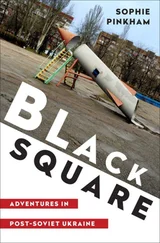Rosen-Montag didn’t lecture, or really address us. He invited us into his head and we were sightseers on a retrospective tour of his disillusionment with postwar architecture in Berlin and around the world. He was dissatisfied with the modernist principles he’d grown up on, or with what had become of them, and to such an extent he had to ask what else could they have tended toward. It had always been so, that form had to follow function, but he’d nevertheless had many dark nights of conscience about his German masters of the minimal, they who’d taught him to love American grain silos and Shaker barns. He tore at his hair and twisted his sleeves as he spoke, his wide mouth the gateway of pressing thoughts, radical propositions. Oh, didn’t the Bauhaus Archive look like a toaster and Scharoun’s Siemenstadt housing like machine-gun nests? He pulled his shirt out of his trousers and seemed on the verge of peeling off his clothes altogether. He said an intellectual falling-out-of-love was no less traumatic than the extinction of a sexual fire.
Afterward, the room was hot with debate about the tenets of urban planning and Chandigarh, the town in India designed by Le Corbusier. An elderly avant-gardist, the one professor from the un-esteemed Chicago outlet of the University of Illinois who still hoped for something from me and for me, cut through the throng and introduced me to Rosen-Montag. He’d done Rosen-Montag a favor when he was an unknown in the United States, and Rosen-Montag had not forgotten.
I’d been sober thirty-three days and said the first thing that came into my head. I told him that I would never go back to the Berlin Zoo, because on my first trip to Berlin I saw an orangutan who had been trained to wash the floor of her cage with a bucket and a rag. They had put a mammy’s red kerchief on her head. She looked so sad, mopping and wringing. Rosen-Montag immediately offered me a position.
Cello said it was her chance to repay my mother for everything my mother had tried to do for her. She was going to help salvage me, she said. She was, as she said her grandmother used to say, going to help me win the race with myself. It irritated me when Cello attributed my mom’s words to her grandfather or grandmother, who did not like my mom. “I’m going to help you win that race with yourself”—that was what Mom used to say. And then she would ground me or try to make us earn the money for what we wanted. Cello’s grandmother never said things like that. Other peoples’ fates, especially that of her troubled son, Cello’s father, were not her concern. It would have been rude, not to mention inconvenient to her radio and television schedule, to try to make them so.
I could tell that Cello couldn’t quite believe the news that I had been hired to work with Rosen-Montag on the book he was writing about his current project. I would also do a series of interviews with him as the work progressed. She was somewhat reconciled to my galling reversal of fortune, because I referred to myself as a cog in the wheel of Rosen-Montag’s propaganda ministry. I kept to myself the information that Rosen-Montag happened to have been on the wagon the night we met. He liked that I’d just got out of rehab, the sort of social fact you blurt out when you just get out of rehab and don’t know how to behave.
Cello moved us back to German conversation. I followed her to the front door, where I’d left my four suitcases. To get them on the plane had cost me. Now the bedroom where I’d smuggled in that painted Turkish boy was kept for Dram’s mother and father when they came up to town and needed to rest after lunch, or for Dram’s mother to change before a concert. Those were her sets of Brentano and Hölderlin and Heine in the bookcase. A short corridor to the side of the front door led to a small bathroom with a thin shower and, just before it, a maid’s room, with a sweet window onto the inner courtyard above the narrow bed.
“Dram is pleased,” Cello said, still in German. I was fairly sure she said that my having stumbled upon something interesting to do should keep me out of trouble, if I had the will not to sabotage myself. I was in no doubt that she said Dram would come at six o’clock to put the children to bed and to have dinner with us and then he would go back to the office, as he did every weeknight.
Her German was as intimidating as everything else about her. I’d once heard a boy from Poland converse in English with a boy from Yugoslavia. It was weird to hear English used as a device, with no cultural inflections. Cello would have said that she was making me practice my German, but she was also canceling out our equality. I didn’t know where she got her accent in German, but I was sure it must have been an upper-class one.
Maybe because she never felt that she could depend on her parents, Cello was not the kind of person to waste an opportunity. She always knew where she was. Her will, her application, never failed to impress adults, and her renown as an achiever made her peers a tad uncomfortable in her presence. I mean us, me. There she was, always far ahead, ahead even of my brother. The Negro Achiever was a species of secular saint. To be young, gifted and black, Nina Simone sings.
Cello knew that the Curtis Institute in Philadelphia rejected Nina Simone when she auditioned in the early 1950s. Cello said she heard that the school had long been accepting black students by the time Nina Simone applied and maybe the Curtis faculty’s criticisms of the jazz legend’s playing were fair. I was so shocked when she told me that.
* * *
I helped with the children’s tea that first month, but they remained leery of me. I thought Cello must have said something to them and to the nanny about not going down the narrow hall to the maid’s room anymore.
She had her narcissistic grandmother’s sense of style. In a time of tundra-wide minimalism, her deep rooms were crisscrossed with sofas and colorful textiles and tables large and small and mirrors round and square and chairs thick and thin and bookshelves high and low, one concert grand, one baby grand, and an upright in the so-called nursery off the kitchen. Early instruments and ethnic instruments hung on some walls, but mostly where a drawing or photograph might have been were windows. Sunlight attended the happiness of Cello’s days. Therefore the reception rooms in front had mirrors, but nothing framed, and the hallway leading to the bedrooms in the rear was bare, except for children’s drawings taped up at random. Dram encouraged the eldest to put on socks and slide with him on Sunday mornings.
Cello’s happiness included her status as the possessor/confuser of Dram, heir to a family manufacturing firm, Schuzburg Tools. A branch of the family had become immensely rich building Russia’s railroads. Mentioned in Tolstoy, they perished with the White Army. Dram’s branch of the Schuzburgs had survived because a nail was a nail, a contract a contract, a customer in the right, whether kaiser or National Socialist, NATO or African dictator. The family firm made things most people hardly thought about — hammers of every kind, nuts and bolts and screwdrivers of every size, more and more different kinds of hammers, then hundreds of varieties of electrical instruments.
Cello’s large-faced, husky husband gave up his music studies after his older brother was killed in a drunken accident not far from his home on the Schlachtensee. He rolled his car backward down a little birch-spotted embankment. It hit something and flipped over and smashed him. Dram buried his brother and went to work. His father didn’t ask him to come back. He just did. There was never a question that either of his two older sisters would take over after his brother’s death. Dram never talked forging capacities or galvanization facilities in front of me, but I knew from Cello that under his management the company was beginning to win prizes again and that its hundreds and hundreds of employees in West Berlin and Dortmund were deeply loyal to him. I’d already seen for myself how his father hung on his every word.
Читать дальше












